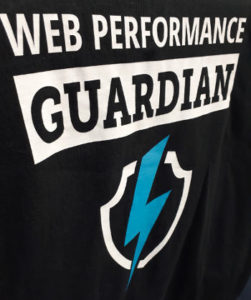Although we work in the same company, the daily life of each Dareboost collaborator is very specific. About a year ago, we have hired our first remote workers. That was a new organization to be found. We do not live in the same place, don’t have the same jobs or routines, and it sometimes does not make it easy to share our successes, our doubts, our feelings. We’re enthusiastic and absorbed in what we’re building, but we also need to take a step back, once in a while, to nurture our vision and company culture.
We regularly meet in Dareboost’ headquarter (Rennes, France) for a few days of brainstorming where we alternate between workshops, indoor or outdoor activities, and friendly meals (long live the raclette!).

Getting better as (a) team(s)
We discussed everything that can help us work better together, such as renewing our commitment to Non-Violent Communication (NVC), but also to be more explicit about our emotional states. Indeed, our different activities, our personal lives, sometimes add invisible barriers to physical distance. During a conversation, some signals can be very difficult to interpret correctly, whether they are strong (“Is s·he really angry, or is s·he joking?”) or weak (“What feeling is s·he trying to convey to me?”). Talking about it allowed us to put words into how we could make progress in this area. We happily came to the conclusion that we achieved major improvements since our last meeting a few months ago, and that remote workers were now feeling very well integrated within the team. We’re very confident about the next steps, and we will definitely open some future positions as full-time remote.
Discussing our differences also allowed us to point out our respective grey areas. Some of us are closer to the code base, others closer to customers. We’ve found some techniques for this information to be better shared, through qualitative and quantitative reporting and regular feedback. This moment of exchange also allowed us to share some anecdotes from our daily lives, and to laugh about them together.
Finally, each team met in smaller committees to better align their daily processes with their objectives: the developers focused on a manifesto and how to adapt the code contribution process to match it. The Customer Success Managers focused on methods to improve the service to users and customers.
Both meetings were sharing the same conviction: we want to build something qualitative. Concerning the product of course, but also in the relationship with our users and customers, as well as in our processes. We’re driven by the idea of continuous self-improvement. Our investments in Customer Success have been significant, and today, we know it’s profitable. For our Customers and consequently, for our sales, but also (and maybe more importantly) for our Culture.
Eventually, everyone agreed on the need to publish a review article to make this process transparent (you’re reading it!). In the coming months, we will also completely redesign the “About” page of our website so that our core values can be better presented (This is now the case).
Brainstorming on the business model, after 5 years of Dareboost
Dareboost is approaching its five-year anniversary. This meeting was an opportunity for the whole team to reflect on what has changed over the past 5 years, but also to imagine the objectives for the next 5 years. Each team member had the opportunity to express their views on what Dareboost was to them, both as a company and as a product. The founders remembered the ideas they had experienced before we arrived, and shared their desires for the future.
From this very fulfilling moment of exchange came a deep conviction: Dareboost is not just a paying tool to monitor and improve performance. As a team, we deeply think the free version of the tool is not just a way to acquire customers, but a great way to help the web becoming a better and faster place. For a whole galaxy of users, it is also a first educational contact with a web quality-oriented approach.
In the coming months, we will work on our freemium offering so that Dareboost benefits everyone, more than ever. The first years of the company were dedicated to building a great company and product, and of course to break even (particularly given the fact we’re self-funded). More than ever, we now want to invest more in building a great place to work and have a greater impact.
Dareboost as an ecosystem
Dareboost is not a tool designed for #webperf gurus only. We designed it for all people, whatever their level of expertise, and we are constantly improving it so that it can be used collaboratively. People of many different job positions are using Dareboost on a daily basis: web developers, project managers, SEO managers, DevOps, SRE engineers, marketing managers, and CEOs… We deeply believe that all people whose work may affect the web performance of a website must be onboarded.
Dareboost has two main types of customers :
Website owners/publishers are using Dareboost to test and monitor their web pages and user journeys, from the staging environment to Production, in order to improve the quality level of their developments. This defines our most significant E-commerce and Media customers (feel free to take a quick glance at our references).
Consulting Services (web agencies, consultants and freelancers) use Dareboost to initiate audits and monitor performance on the projects of their own customers. They fix issues – and sometimes the company Culture – to help their customer reach a higher level of quality than they could have achieved alone.
We know of Consulting firms that are struggling to promote their particular skills in web performance optimization and would welcome any new customer. They are familiar with the market, understand the internal processes of all types of structures and as they’re already using Dareboost for several of their customers, we can be confident they can help build a shared Performance Culture. What better way to help publishers who are looking to make their sites faster than to connect them with these consultants whose fundamental value is to optimize web performance?
That’s why, a few months ago, we started a process to better identify our integration partners. Many interviews have already been conducted to define their needs and help them thrive. Early in 2019, we will start promoting them with something simple.
If you’re already a customer and interested by this initiative, let us know by sending us a link to a published Use Case explaining how you used Dareboost to help one or more of your customers.
Sharing more than just our job
Dareboost is not just our work. It’s the living environment in which we spend most of our day. We want this space (virtual for the remote workers among us) to be pleasant, but also provide opportunities for learning and pleasure.
That’s why we took the opportunity of these few days to share a lot of things besides work.
For several weeks, under the supervision of Matthieu, our “games” expert, we discussed several activities and restaurants. We discovered things that did not necessarily fit into our schedule for this meeting, so we decided to save them for later (bubble soccer, axe throwing workshops…) and focus, this time, on board games.
We spent our evenings alternating good meals with rolling dice on very good games:
- Skull, a bluffing game that is both fast and easy to play
- Bang, a game that takes place in an old-fashioned spaghetti western, where each player must survive and make his side win
- Galerapagos, a (not so) cooperative game where players embody shipwrecked people trying to survive (only Rémi managed to get away-)
- Diamant — also known as Incan Gold — a quick press-your-luck game

We promised ourselves to play Captain Sonar at the next meeting. It’s a role-play team-based Battleship that seems very fun!
We also organized a workshop during which Matthieu tried to communicate his passion for Rubik’s Cubes (he has dozens) to the whole team. It seems that after me (Matthieu taught me a few months ago), Anthony is the next cuber in the band!
Finally, the team discussed readings, to enrich the office library we started in Rennes. Some of us shared their recent discoveries, such as:
- “It Doesn’t Have to Be Crazy at Work”, by Jason Fried and David Heinemeier Hansson, a practical and inspiring compendium of ideas and experiences from the founders of Basecamp, on calm and serenity in an industry that often values crunch and empty superlatives.
- “The Phoenix Project: A Novel about IT, DevOps, and Helping Your Business Win”, by Gene Kim, Kevin Behr and George Spafford, a well written, engaging novel that is often considered as an allegory for earning the fundamental values of DevOps ;
- “Designing Data-Intensive Applications: The Big Ideas Behind Reliable, Scalable, and Maintainable Systems”, by Martin Kleppmann
- “Delivering Happiness: A Path to Profits, Passion, and Purpose”, by Tony Hsieh
See you!
This meeting was, as always, a great opportunity to discover each others and discuss many topics. We will do it again at the beginning of next year and, who knows, maybe you will be one of us? We’ve got open positions!
